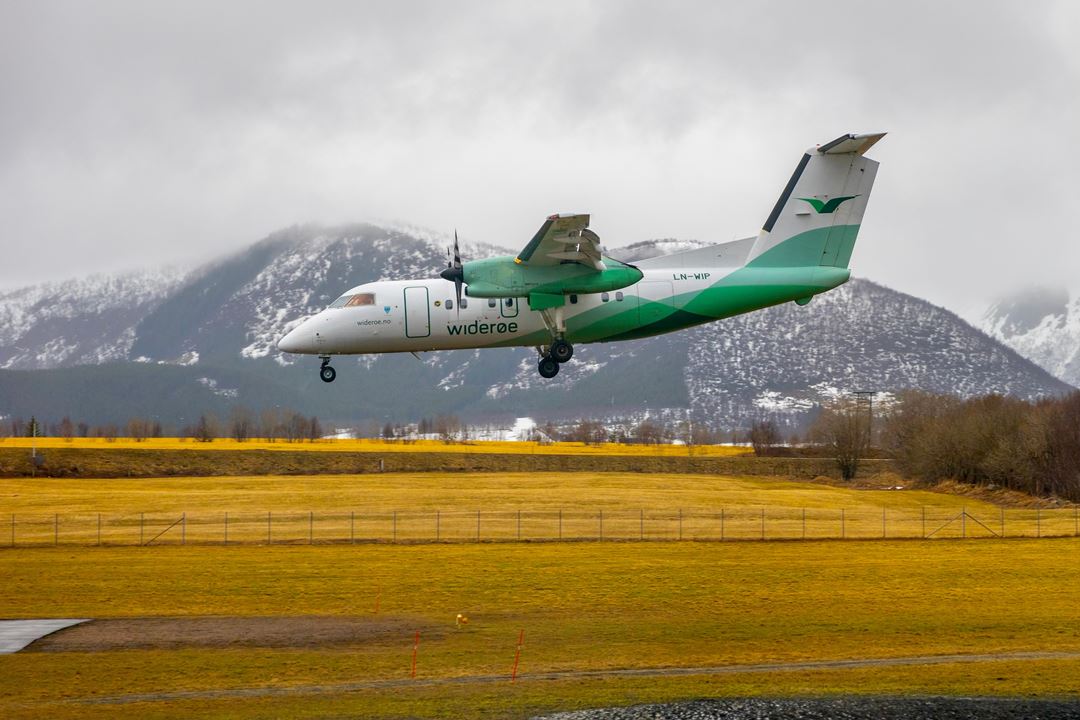For a long time, it has been clear that Norway should follow through with the development of technology for sustainable production of biofuels on Norwegian soil. DN's article on the government's climate action adds two new elements to the list of arguments for domestic biofuels production.
DN establishes that the government's plan means that over 40 per cent of the new cuts in greenhouse gas emissions by 2030 should come as a result of increased use of biofuels (“Regjeringen tyr til kontroversielt grep for å nå klimamål”, 10 October).
At the same time, DN points out that the government's own carbon accounting has a warning regarding biofuels: That it is unclear whether global production can deliver in line with global demand in the long term.
This comes on top of a series of other arguments affirming that the State budget should earmark funding towards developing technology for domestic biofuels production. More specifically, to complete this development in which Norway has come a long way. Yes, almost to the finish line.
This is the background:
Norway has a "blending mandate" scheme for mixing biofuels into fuels sold. Until now, this has been most relevant for petrol station owners. This year, they must now ensure that 17 percent of the fuels used for road traffic in Norway are sustainable biofuels. That is, liquid fuels made from biologically derived raw materials that do not compete with food or animal feed production. For example, residues from forestry, waste, or other biological residues.
For Norwegian aviation, the requirement is that only a scant 0.5 percent of the fuel used must be sustainable biofuel. Now the EU has announced a sharp tightening of the European blending mandates for both aviation and shipping in Europe.
In our increasingly geopolitically unstable world, this tightening, and the consideration of security of supply, means that Norwegian aviation will have to become more self-sufficient in sustainably produced fuels.
Completely in line with this, on 2nd May this year, the Norwegian Parliament asked the government to present a plan to increase the production of advanced biofuels in Norway.
Just three days later, it became public that its main investor Shell is putting the brakes on the production facility planned at the Norwegian company Biozin in Agder: The first full-scale facility in the world to make sustainable biofuels for airplanes and cars from wood waste.
The cancellation came "after extensive technology testing and new cost calculations", according to the press release from the project.
This sudden cancellation reinforces a persistent myth that it will be too expensive to make biofuels from sustainable biomass. The notion is closely linked to another myth: that aviation can do without sustainable biofuels, "because sooner or later aircrafts will be powered by batteries or hydrogen."
However, battery and hydrogen operation require replacement of the entire aircraft fleet. This will take time and be far more expensive.
Therefore, battery and hydrogen powered aircrafts will come too late in the green transition to fulfil the EU's toughened sustainability targets, which will apply from 2025 onwards. These targets state that we must blend either sustainably produced biofuels or synthetic e-fuel into today's "jet fuel", in ever-increasing amounts.
Synthetic e-fuels can be produced today, from hydrogen and CO2, using large amounts of electricity. If this is to be done sustainably, not only must the hydrogen be green, but the CO2 must ideally be captured from the atmosphere or from the processing of biological materials.
This will probably make it even more expensive to phase in synthetic e-fuel before 2030 than to do the same with sustainably produced biofuels.
Compared to the alternatives, sustainable biofuels are therefore not that expensive after all.
Today, we import all the biofuels we consume. Why not just continue like this?
Firstly, because trade wars can occur in our geopolitically unstable world. Domestically produced biofuels can help guarantee that our airplanes still fly during such events.
Secondly, we must be able to determine the quality and the ethical standards of the biofuels we use. Today, we import products whose origins we do not always know. The biofuels are mainly sourced from the USA, China, and Germany. How sustainable is that?
So how do we increase self-sufficiency, when the story of Biozin shows that investors are reluctant to take the last step?
The answer is the same here as in the debate about how to succeed with offshore wind, batteries and hydrogen production: That the State must contribute to economic de-risking.
In addition, more research is also needed in this field of technology. The story behind the oil and gas adventure suggests that we can also achieve efficient and sustainable domestic biofuels production.
By Duncan Akporiaye and Ågot Aakra


